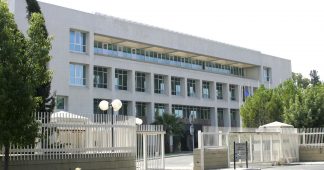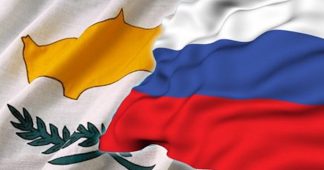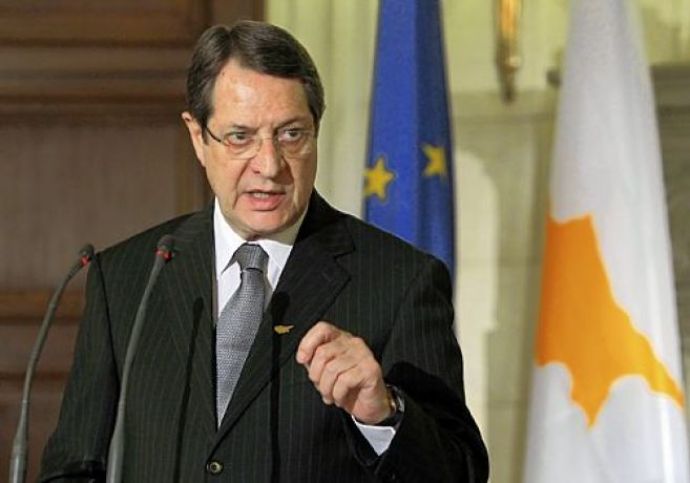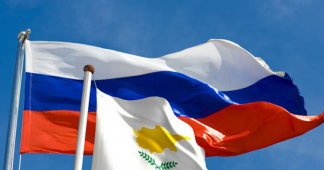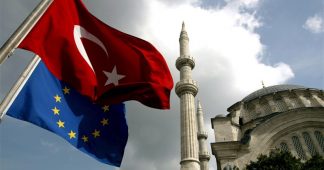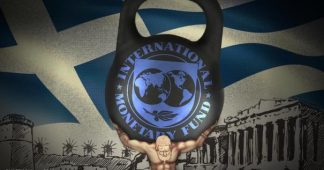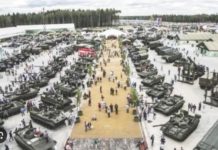Devoid of preparedness, the Greeks try to use aplomb against Turkish aggression
By Aris Petasis
The great nations have always acted like gangsters, and the small nations like prostitutes: Stanley Kubrick
Hellenism (Greece, Cyprus and the diaspora) is short of power factors and committed allies. Reactions to the Turkish provocation and shaming of the Greeks on (the islets) of Imia, in the Aegean, at the Evros river and Cyprus’ EEZ have disappointed the Greeks:
- a) the UN has washed its hands of the problem;
- b) Cyprus’s ‘strategic partners’ have gone into hiding;
- c) the bilateral, trilateral and quadrilateral alliances that Cyprus had been boasting about have come to naught;
- d) the unrestrained boast, ‘The USA is our strategic partner’ went up into smoke, since at the time of crisis the US was nowhere to be seen;
- e) Britain, Cyprus’s guarantor, has gone missing; and
- f) The PESCO agreement, which in the naïve minds of some Greeks meant that the EU would come to the military rescue of the Greeks, has proven to be a joke.
Alone and disappointed, the Greeks find themselves unprepared to meet Turkish aggression and are seeking to improve their power factors. Simply put these are (see Frankel, Morgenthau) external affairs/diplomacy, economy and Military/deterrence.
External affairs: The quality of this Greek power factor can best be defined by the way the Prime minister of Greece dealt with the issue of Cyprus’ independence from British colonial rule in 1959. He signed an agreement giving Turkey the right to intervene in Cyprus in violation of the Treaty of Lausanne, and then came out boasting that he had ‘solved’ the Cyprus impasse. Turkey was delighted with such an unexpected gift and invaded Cyprus fifteen years later, as expected.
Economy: The economy of Greece is on its knees on account of a burdensome state debt to foreigners that is now some 180% of GDP. The tax regime is crushing all initiative and sending the brightest into exile in search of a better life. This catastrophic reality is the result of years of pseudo-socialism, incompetence and the greed of the Greek economic and political elite, labour unions, banks, etc. Cyprus is drowning in NPLs that are now in the region of 110% of GDP and threatening the economy as well as the banks. The Cypriot Social Security Fund is all but empty of reserves on account of loan default by the state that borrowed the funds. Youth unemployment seems to be an unending problem, sending thousands of promising young university graduates into economic exile. The haircut of depositors’ money meant the loss for Cyprus of any semblance of credibility amongst serious foreign investors. Thankfully for both countries, tourism came to the rescue and gave the two economies some hope. Bloomberg (2017), puts Cyprus and Greece amongst the first 16 most economically miserable countries. Thankfully for them Turkey is not doing any better. Of course, Turkey’s GDP is four times that of the combined GDP of the Greeks.
Military/deterrent power: As regards military power, that means only the power of the Greeks to deter Turkish aggression, since Greece does not intend to attack Turkey: first, Greek contributions to defence have been reducing, whilst those of the Turks increasing, particularly in the area of arms production. Second, Cyprus’ capacity for deterrence, as noted by foreign agencies and reports, is weak. In the last ten years Cyprus has collected more than €3 billion through a special defence tax, yet with only a fraction of these funds going towards defence. Whilst Themistocles committed all the silver finds of Lavrio to building Greece’s defences against Persian aggression in the 5th century BC, Cypriot defence taxes have gone partly towards the purchase of state limousines for the comfort of state officials, giving Cyprus the unenviable record of having more state limousines than ambulances. As regards respect for politicians at all levels in both countries, the distain recorded in polls speaks for itself.
Under current conditions neo-ottoman Turkey is expected to continue with its provocations and aggression, because it views today’s Greeks as blabbering and marginal nobodies in a festering geopolitical scene of innumerable wars and violent conflicts: Syria, Iraq (and Iran, maybe), South Sudan, the Ukraine, the South-East China sea, etc. This boiling war cauldron is fed by atavistic passions, big power and multinational company economic interests (around energy finds), national confrontations, religious antagonisms, hallucinations concerning Turkish military power, irredentism and revanchism. In the face of this nightmarish scenario, the Greeks proudly display their most potent ‘weapon’ which is: ‘We shall meet Turkish aggression with aplomb and seriousness’. Greek politicians like to declare this publicly. All this (in the language of strategic planning) sounds hollow, like noisy gongs and clanging cymbals. God willing, my next article will cover the subject of how the Greeks can enhance smart power and improve their factors of power through alliances. But they will first have to find a radiant personality of Themistocles’ stature.
